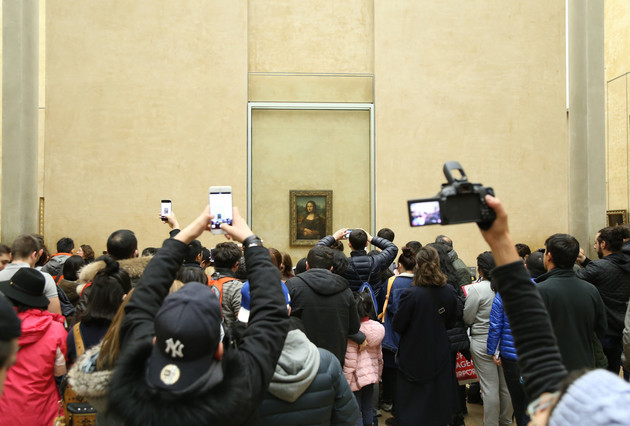
Photo/Shetuwang
Apr. 3 (NBD) -- Arriving in Chongqing, which took short-video sharing site Douyin by storm last year, Song Mengyao went directly to a hotpot restaurant she selected after taking advices from Douyin and social media Little Red Book and Weibo.
While waiting for her turn, Song walked in and out, photographed every corner of the restaurant, applied effects and filters to the photos, wrote a few paragraphs, and made a grand announcement on her social media page about her arrival at this online sensation.
Although Song can't handle spicy food, yet she insisted on ordering the hot condiments, because a photo of appetizing and real Nine Patch copper hot pot would be essential to complete her "check-in".
Hours later, Song finally sat down, toned down the spicy food with a bowl of water and had a hurried meal.
"Check-in" or "clock-in" on social platforms refers to the process whereby users announce their arrival at a popular place, with a whole train of well-shot photos.
Today, thousands of people like Song Mengyao are punching in at the same places, repeating the same routes and capturing the same scenes. History and scenery can't walk into their minds, but leave an imprint only on their photo albums.
From Hongya Cave to Liziba Station, and to top-rated homestay hotels, Song missed nothing. "I got up early for this video. One like on my Douyin account would make the trip worthwhile," Song said, while searching for the best angle to shoot the video of the train "disappearing" through block of flats at Liziba Station.
Under the combined effect of influencers, ordinary people and marketing, the check-in atmosphere has become increasingly intense, and places to clock in have sprung up.
Undeniably, this boosts tourist income for cities, but it also brings about negative impacts.
"I don't want to appear in the lens of a stranger, and I don't want to hear loud noises when I am taking a break with my eyes closed," lamented He Wensi, who takes metro Line 2 passing through Liziba Station every day to work.
The moment the train stops at the station, tourists swarm to take pictures and shoot videos, and speaking trumpets of tour guides blare.

Light rail at Liziba Station, Chongqing, passing through an apartment (Photo/Dfic)
Behind the abustle and astir surface, someone or something is sacrificed.
52-year-old scrawny vagabond in Shanghai known as Shen Wei, being homeless but educated and eloquent, rose to fame recently. Dubbed as Vagrant Master, Shen became another "check-in" web sensation. People come to take pictures of/with him or live-stream his life without actually caring for him nor wanting to know him.
Since check-ins became ubiquitous, some people cast about for ways to satisfy such needs.
Xi Rui (pseudonym) last summer opened a milk tea shop. After doing some research, Xi deliberately designed three different themed areas for customers to take pictures, such as a swimming pool full of colorful balloons, providing Instagram-style pillows, accessories and even lighting kits.
"Good looks prevail nowadays. Few people mind how my drinks taste. As long as they share good pictures taken in my store, I'll have more customers coming," Xi said.
As a matter of fact, quite a lot merchants like Xi lay more emphasis on store decoration and marketing than the taste which is supposed to be the basic.
Little Red Book, Douyin and Weibo are the major positions for online marketing where articles, comments or short videos about certain stores are purposely published to enhance exposure. At a later stage, some well-know figures are invited to visit the stores and write reviews.
Some marketing groups even hire people to queue up outside the stores in order to create fake impression of popularity.
However, most online sensations created by such money-burning means faded away quickly, as fermented negative comments from customers or tourists who come to check in block the road to fame for those one-hit wonders.
Email: gaohan@nbd.com.cn


 川公网安备 51019002001991号
川公网安备 51019002001991号





